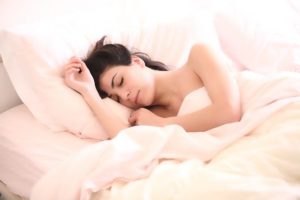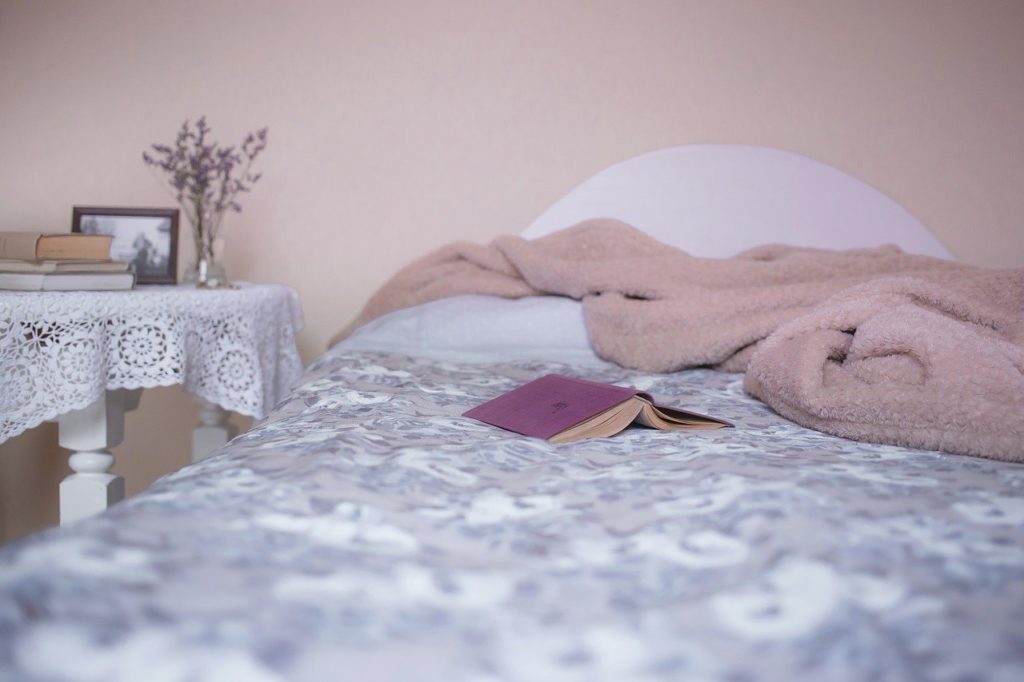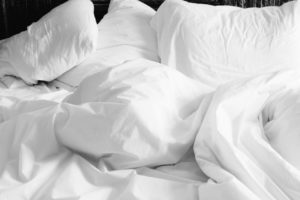This post is inspired by Lesson 7 of The Lift Project, a cutting-edge depression and anxiety program. Developed by lifestyle medicine expert Darren Morton, Ph.D., the program is used by companies and groups. Click here to learn more.
“The very best way to lengthen the day is to steal a few hours from the night.”
– Sir Henry Norman –
Main point: Sleep well
As you may recall from this blog post, the limbic system is the part of the brain involved in emotion and action. What affects your limbic system changes how you feel–happiness, sadness, anger: each emotion springs from this brain region.
Your limbo takes a hit when you are tired.
With regard to memory, countless studies have shown that sleep facilitates the formation of memories and so improves memory. In a study at the University of Alabama, researchers gave study participants some things to remember, then instructed half of them to have a nap before returning 12 hours later for a memory quiz. The other participants were told to avoid napping but that they would receive a financial reward for every answer they got right in the quiz. The researchers found that when it came to boosting memory, the nap worked better than the cash prize! It is not so surprising, since we know that new neurons are generated in the Limbo during sleep.
We also know that sleep deprivation affects many automatic bodily processes like memory, motivation, and immunity. Sleeplessness can result in sickness.
Did you know that sleep deprivation impacts the Limbo’s main function: mood? Sleep deprivation is linked to low mood and depression—but which comes first?
Studies show that when you are sleep-deprived, your brain is geared toward the negative. In other words, the less sleep we get, the more likely we are to focus on the negative.
 How Much Sleep do We Need?
How Much Sleep do We Need?
The Expert Panel of the National Sleep Foundation recommends nine to 11 hours each night for school-aged children, eight to 10 hours for teenagers, and seven to nine hours for adults.
If sleep is so important for mood and memory, why do we struggle to get the recommended amount?
Sleep-stealing Culprit 1: Physical Inactivity
We know that the more we move, the better we feel. Studies also show that increasing our physical activity levels is an excellent way to improve sleep quality. Some people find it difficult to fall asleep if they exercise too close to bed time, so it is recommended that exercise be performed earlier in the day.

Sleep-stealing Culprit 2: Caffeine
The widespread use of caffeine might be contributing to insomnia. Around 85 percent of people use caffeinated products every day in the United States. It is the most commonly used psychoactive drug in the world.
How does caffeine impact sleep?
Over the day, our brains progressively accumulate a chemical called adenosine. When adenosine levels are high, we feel sleepy. When we sleep, adenosine levels come down and we wake up refreshed. However, caffeine blocks the receptors in your brain that detect adenosine. Therefore, even though the adenosine levels might be high, your brain doesn’t register it, and so you don’t feel tired.
Caffeine makes it harder to fall asleep, reducing your ability to enter the deeper and more restorative levels of sleep that clear the adenosine.
When adenosine is not cleared, you wake up feeling lousy and need more caffeine to block the receptors and get going again.
Caffeine can be an insomnia culprit even for morning-only users, since its stimulating effects can persist for up to 14 hours.
Sleep-stealing Culprit 3: Night Light Pollution
Today, more than 99 percent of people living in developed countries are exposed to what is labelled “night light pollution,” or exposure to light during naturally dark hours. Interestingly, the increasing rate of depression over the past few decades parallels increased exposure to such conditions.
Our Limbo has an in-built clock called the suprachiasmatic nucleus, the SCN for short. SCN sets your sleep-wake cycles, known as biorhythms or circadian rhythms. These rhythms follow a 24-hour cycle and dictate when you feel sparkly and when you feel sedate.
The SCN notices the amount of light that comes in contact with your eyes; at night, when we use light-emitting devices and/or are in well-lit rooms, our SCN thinks we need to “rise and shine!”
In short, artificial light at night wreaks havoc on our biorhythms. The poor SCN doesn’t know whether to make us feel sleepy or sprightly. What can we do about this?
Tips for Sleeping Better
 Get the right light. Avoid bright–especially blue–light at night.
Get the right light. Avoid bright–especially blue–light at night.
Be active in the morning light. We know that both morning light and exercise are great for improving sleep. Why not combine the two, if you can, for a double bonus?
Stick to a sleep schedule. Go to bed and wake up at much the same time each day, if you can–even on weekends. A regular sleep-wake cycle helps your bio-clock, the SCN, get into a good routine to know when to make you feel sleepy an when to make you feel awake.
Avoid things that keep you up. There are a lot of things that can keep you up at night. Caffeine is one of them. Exercise and eating too late in the evening also have stimulating effects on some of us. Alcohol, also, keeps us in the lighter stages of sleep.
Make your sleep environment the most relaxing place on the planet. Make sure your bed is comfortable, inviting, and your room is a dark and quiet place. Take time to relax, whether it be to read a book, listen to music, or have a bath.
Your Week’s Challenge
- TIB-8
TIB stands for “Time in Bed” and the “8” refers to eight hours. This week, challenge yourself to spend eight hours in bed each night. You don’t have to be sleeping–you can read or do whatever–but stay in for at least eight hours. Notice how TIB makes you feel.
“Sometimes, I wake up cranky; sometimes, I just let him sleep”
– Anonymous-
Main point: sleep well
Check it Out
- Matt Walker’s Sleep is your superpower TED Talk 2019. An entertaining defense of sleep and how it can transform our lives.
- For additional resources, visit the National Sleep Foundation‘s website.
